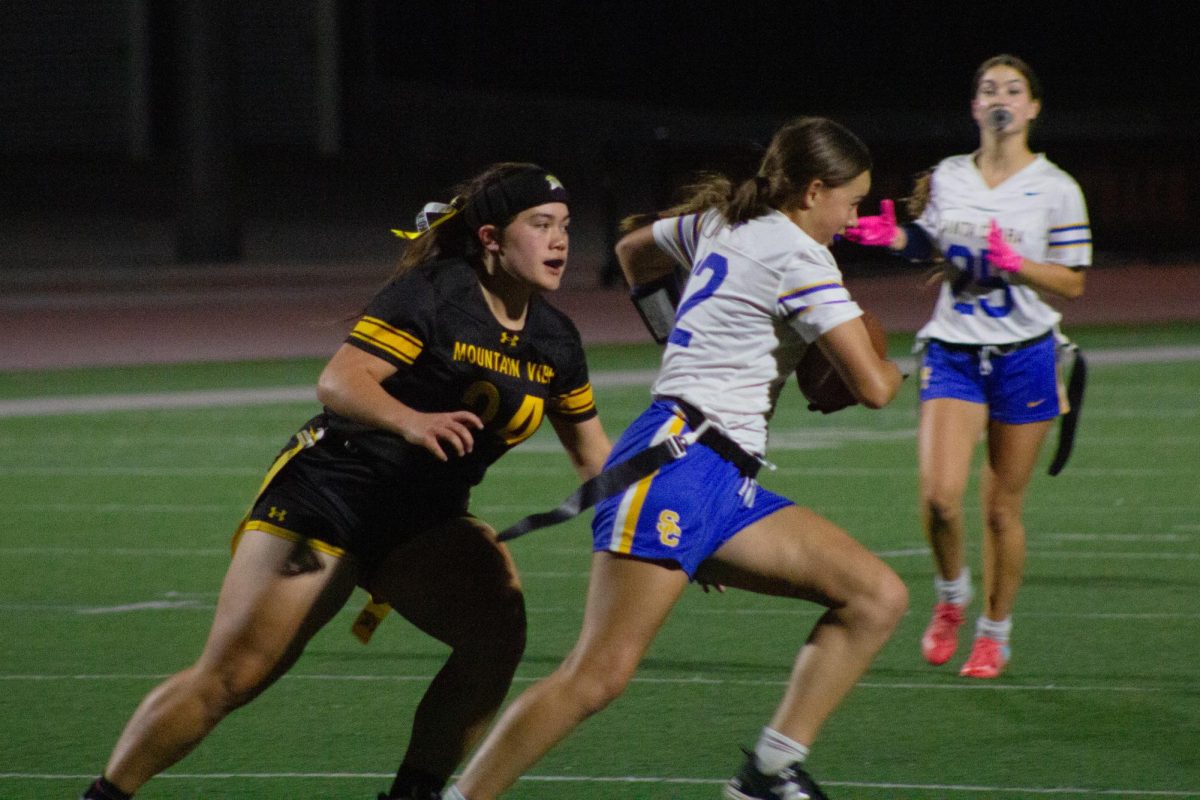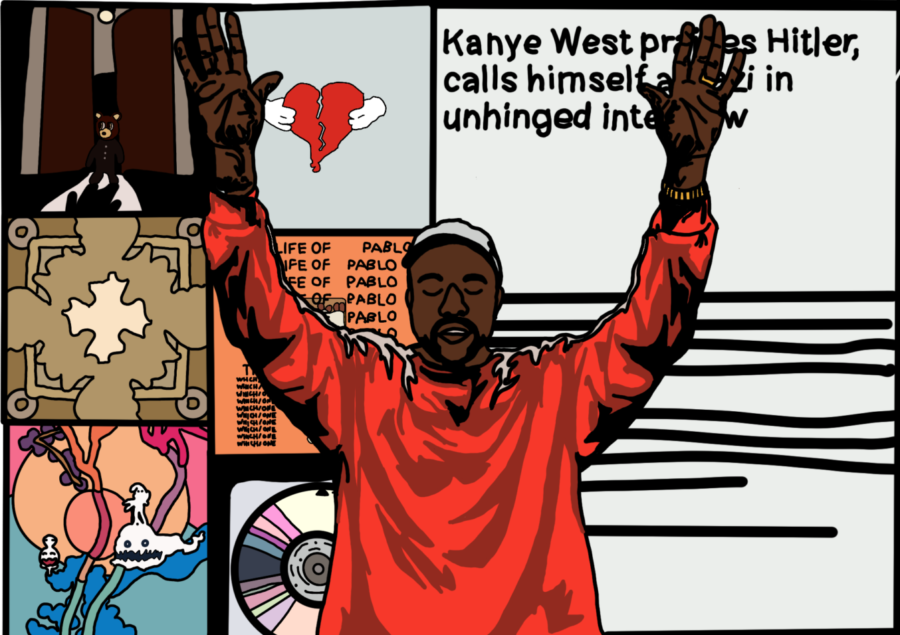Kanye West’s antisemitism: A Jewish fan’s perspective
In recent weeks, Kanye West has stated his antisemitic views on social media and in interviews.
Dec 18, 2022
I have been avidly listening to Kanye West’s music for years. Since I was ten or eleven years old, my Israeli mom and I would emphatically bop our heads to the hard-hitting beats of “Jesus Walks” or “Gold Digger” during late-night drives. As I got older, West’s music became a staple in my music taste.
A few weeks ago, I was watching an interview between West, who now goes by Ye, and CNN’s Chris Cuomo. I, a first-generation Jewish-American, had seen vague news reports of his antisemitic remarks, but it was only when I heard him say “I’m being attacked by the Jewish underground media mafia,” that I realized the severity of them.
Over the next few days, I saw him tweet that he’s “going death con 3” on Jews, later saying that he meant to type “defcon 3,” a level of alert used by the U.S. military. Weeks later, in a separate interview, Ye said, “There are some things I love about Hitler,” and later posted an image of a swastika, the Nazi emblem, inside the Star of David on Twitter.
It’s 2022. When Ye spouts antisemitic statements that sound as if they belong in the 1940’s, each word is consumed by thousands, if not millions of people.
Lyrics, verses, and choruses are windows into how an artist views the world. Ye’s music is a reflection of his life and how he perceives it. He takes personal anecdotes and stories about everything from his childhood, relationships, and struggles, and crafts them into best selling albums, which people can connect and relate to.
Ye’s music has guided me through some of the roughest times of my life, in ways that I’ll always appreciate. Music provides me with an escape and solace, away from everything else. But separating Ye — an artist whom I’ve revered and appreciated since childhood — from his actions just isn’t something I can do anymore.
Artists and their art are fused; it’s impossible for them not to be. Artists give all of themselves to their music, baring secrets and emotions. I can only assume that Ye’s views are a part of his music, even if nothing is explicitly said. Listening to the music of a Nazi-sympathizer and antisemite, no matter how good it is, is a line that neither you or I should cross. Listening to Ye’s songs and supporting his businesses enables Ye to continue living his life without consequences.
The severity of Ye’s words and the impact of his actions leaves everyone with a choice to make. Neutrality is unacceptable.
The choice to boycott Ye’s music is a deeply personal one, and one that I make as a person who has been surrounded by Jewish and Israeli culture her entire life. Although this choice isn’t one I can realistically expect everyone to make, I hope others follow in my footsteps.
Despite the role Ye’s music has played in my life, he has attacked and disrespected my religion, my country, and the strength of its people. For this reason, I don’t want to be associated with his music. You shouldn’t want to be either.

































